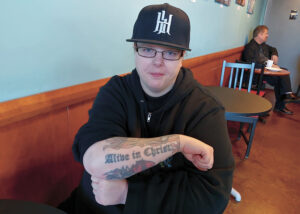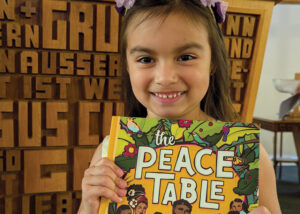This editorial is not about abortion. Or maybe it is.
I write this on the day after Mother’s Day, at a time when conversations are intense about the rightness or wrongness of ending a woman’s pregnancy. There is a lot to be said about the medical, legal and religious aspects of abortion, but not by me right now.
Two things that are not up for debate: Every child deserves to be cherished and nurtured; every adult caring for children deserves to be supported.
I remember those days of raising my own young children: the sheer emotional, physical and financial demands of the job. It took fortitude and commitment. And much love. Our household had two mature parents, working in partnership, along with our extended family. We had support from our church community, and we shared resources with other parents of young children. Our faith in God sustained and directed us.
But the blessings my husband and I experienced back then, and the joy parenthood continues to bring as we relate with our adult children—these are not the reality for some mothers and fathers. For them, life brings challenges that make it difficult, or even impossible, to provide the nurturing that young lives need:
- They are raising a family as a sole parent.
- They lack consistent support from a larger family, a community or a church.
- Because of trauma experienced in their own early years, they don’t have psychological capacity for nurturing another young human.
- Domestic abuse, sexual violence or restrictive laws mean that they have little control over their own bodies.
- The systems of social support are non-existent or difficult to navigate.
- Their child has health conditions that place extra demands on the parents.
- It is difficult for them to access or use family planning methods to time the arrival of children.
Every child deserves to be cherished and nurtured. Every adult caring for children deserves to be supported. For some parents and potential parents, these basic human rights feel unattainable. They live in a society in which abortion seems like the only option.
As Christians, we hear Jesus calling us to love, nurture and support all God’s children. That includes both the vulnerable young ones and the adults experiencing difficult life circumstances.
With God’s help, can we help build a reality that better supports families? In such a society, women would be able to choose what happens to their bodies. Living wages would support every household and educational opportunities would allow people to gain more employment skills. There would be community supports of all kinds, including adequate health care, affordable housing and quality childcare options. The church would be present, offering love, acceptance and practical help.
Many Mennonite congregations include in their services times for blessing young infants and their parents. We affirm, “We welcome children to the church community and commit to nurturing them as our own” (Voices Together, no. 969). To the parents we promise, “With God as our guide, we will share in your child’s nurture and well-being” (Voices Together, no. 970). In our chosen family of faith, we seek to protect and support children and parents growing together in God’s love.
As part of the larger society, how might our congregations extend those pledges to the other parents, youth and children in the neighbourhoods outside the church walls?
Faith communities can offer friendship, spiritual grounding and physical help for adults providing for the children in their care. It could be as simple and friendly as playgroups and sharing hand-me-down clothing. It could be as complex as church members stepping up for foster care and adoption. People of goodwill could open hearts and homes so that ending a pregnancy becomes a less desirable option.
Beyond the debates about abortion is the question of how to make our neighbourhoods and our world places where all are cherished, nurtured and supported. There is much to do.
Clarification
The article “In search of the holy grey” stated that denominational leaders are fully supportive of government restrictions. There have been no official statements from Mennonite Church Canada or the regional churches that indicate that kind of wholesale support.
Read more editorials:
Speaking of faith
Steps on the path
Trusting the Easter story
‘For the joy of ear and eye’
Two years in








Leave a Reply
You must be logged in to post a comment.